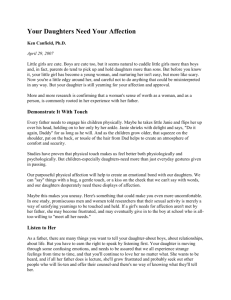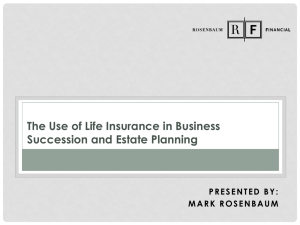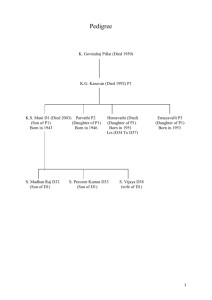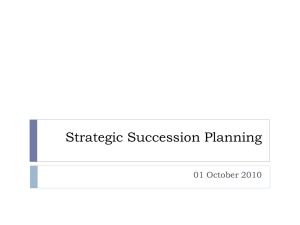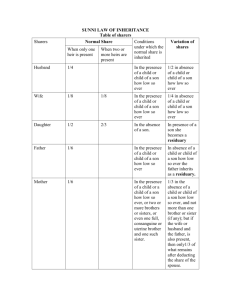Right of Inheritance and Succession – Self-owned Property
advertisement
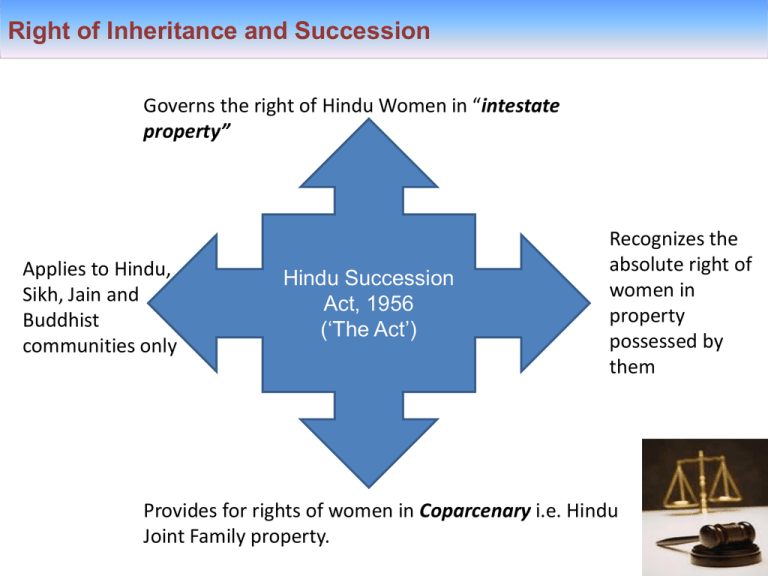
Right of Inheritance and Succession Governs the right of Hindu Women in “intestate property” Applies to Hindu, Sikh, Jain and Buddhist communities only Hindu Succession Act, 1956 (‘The Act’) Recognizes the absolute right of women in property possessed by them Provides for rights of women in Coparcenary i.e. Hindu Joint Family property. Right of Inheritance and Succession – Self-owned Property • Daughters and wives are Class I heirs under the Act; At par with other male members in the family • On death of a male member his self-owned property will first be divided in equal portions among Wife, Daughters , Sons and Mother • Property includes both movable and immovable property - agricultural and non-agricultural land, heirloom, jewelry, cash etc. • In case of a deceased daughter, her son or daughter could demand the same rights “Intestate Property “ is property which devolves on succession and not by way of a written will Right of Inheritance and Succession – Coparcenary Property • Rights in joint Hindu family property or “Coparcenary Property” Daughter to get an equal share as other male members in the coparcenary Daughters can demand partition of the Joint Family estate • For instance: Where a Grandfather, father, son and daughter form a Coparcenary. On death of the Grandfather, Daughter will be entitled to same share as that of father and son. Right of Inheritance and Succession – Dwelling House • Dwelling house owned by the father/husband, inhabited by other male members: A daughter/wife has the same right to peaceful co-existence as other male members of the family A daughter/wife can demand the partition of a dwelling house , if required Marital status of a daughter has no bearing Re-marriage of a Son’s widow does not exclude her from effecting this right

